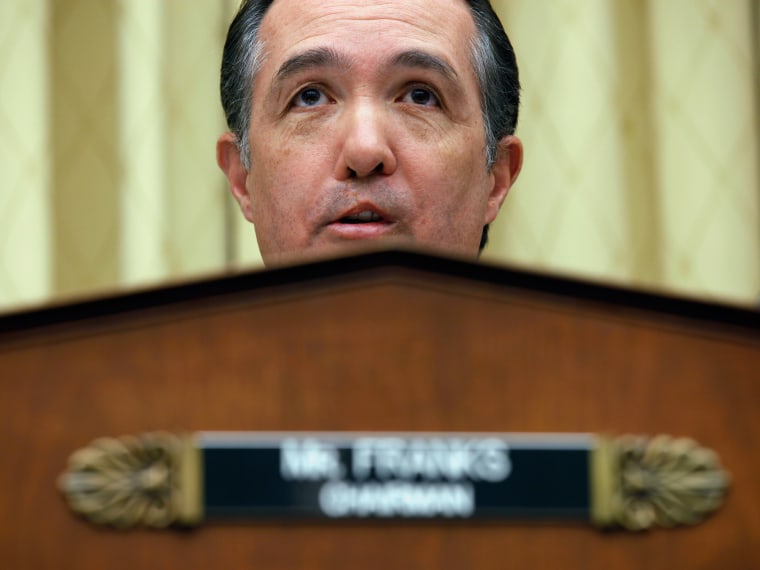A handful of congressional Republicans have expressed tacit support for Russia's alleged espionage operation attacking the U.S. presidential election, but no member went quite as far as Rep. Trent Franks (R-Ariz.)."If Russia succeeded in giving the American people information that was accurate, then they merely did what the media should have done," the far-right Arizonan told MSNBC late last week.As we discussed soon after, Franks' argument is genuinely bizarre. According to the Republican congressman, so long as Russia was stealing actual materials - as opposed to, say, falsifying documents – in order to further its own interests, Franks is satisfied with the results. In fact, the GOP lawmaker seems to believe news organizations should also start committing similar crimes.This is a bit like saying the Washington Post's Woodward and Bernstein should have spent less time investigating the Watergate scandal and more time breaking into the DNC headquarters in order to give the American people "information that was accurate."A day after the interview, the GOP lawmaker seemed to back away from his own assertions, at least a little.
[I]n an interview with CNN's Jim Sciutto on "Wolf," Franks argued that he has been a harsh critic of Russian President Vladimir Putin's regime and that his comment was misinterpreted."Those comments were completely misconstrued," Franks told Sciutto, adding that "nobody has been harder on Russian than me."Franks did not elaborate further on how his comment had been misunderstood.
I've checked the transcript, and Franks made no effort to explain how or why his comments to MSNBC had been "completely misconstrued." He emphasized his concerns about Russia's government, but that's largely irrelevant in this case -- because the question is whether Franks supports Russia's alleged espionage operation that subverted the U.S. presidential election.And on this point, his conclusion wasn't misconstrued at all: Franks said he saw Russian intervention in the American process to be a positive development.The New York Times' Max Fisher noted the other day that it's "amazing how quickly and seamlessly the question 'is it bad when a hostile foreign power undermines US democracy' becomes a partisan issue."It's an important observation. Die-hard Republican partisans can be delighted that their party's presidential ticket won the election, while at the same time, feeling disgust over Russia's alleged intervention. These beliefs are not in conflict. One need not be a Democrat to oppose foreign adversaries interfering with an American election.But Trent Franks is lending his voice to a new kind of argument: so long as hostile foreign powers are leaking genuine stolen materials, Americans should be pleased. The ends justify the means. Indeed, the Arizona Republican is apparently disappointed major news organizations didn't leak stolen materials, too.I'd still love to hear answers to the questions I asked last week:1. If Mexico had broken into RNC computers and Paul Manafort's email to steal materials, embarrass Republicans, and help put Hillary Clinton in the White House, would Trent Franks have a cavalier attitude about international espionage?2. If Franks' own system were targeted in a cyber-attack during his re-election campaign, and his foes published genuine materials stolen from his computer to help elect his opponent, would he be equally quick to declare that the "bottom line" is that the hackers gave voters "information that was accurate"?
